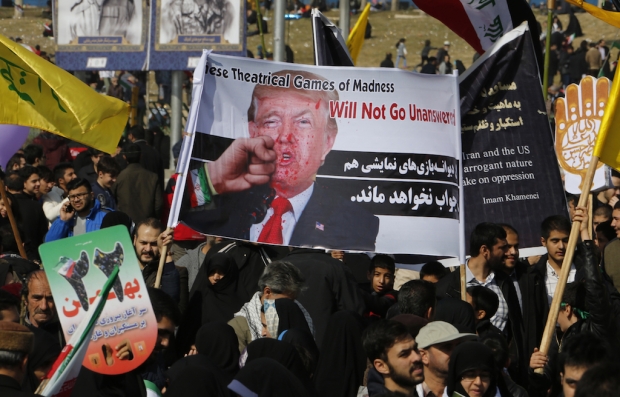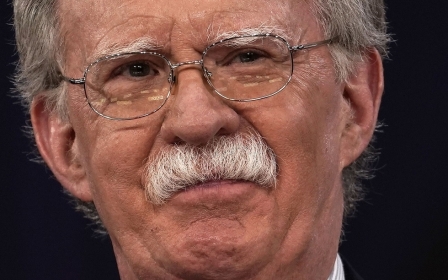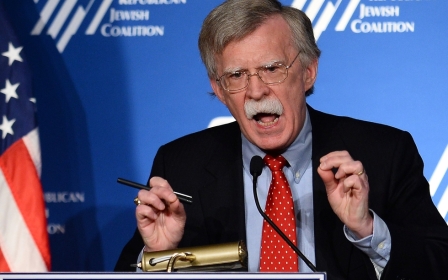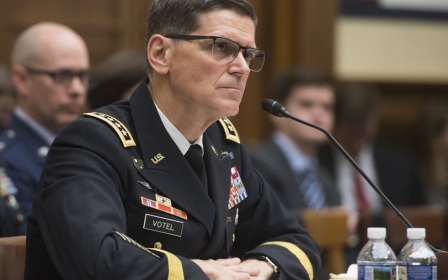Iranians see war clouds on horizon after Bolton appointment
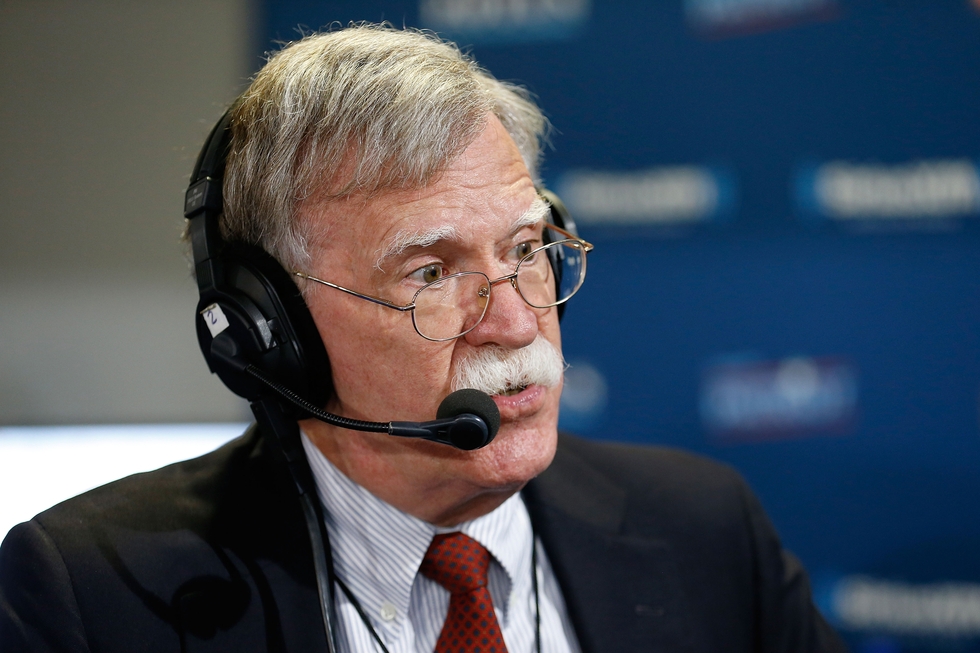
He has made a political career urging aggressive action against Iran, and has called the 2015 nuclear deal with the Islamic republic an act of appeasement.
Now the US president has appointed John Bolton as his national security advisor and one analyst has already said "Donald Trump may have just effectively declared war on Iran."
Iranians have become accustomed to the Persian new year message issued by US presidents wishing the peace-loving Iranian people well and hoping they will be rid of their oppressive government soon.
But few would have expected Donald Trump to announce a spate of appointments that has the feel of a war cabinet preparing for a fight with Iran.
The response from Iranian official sources has so far been muted, due to a national holiday, but political analysts have said that policy coming out of Washington will be "even more extreme and irrational" and that Bolton's appointment could lead to war.
The general consensus seems to be that Bolton's appointment will leave the US as the biggest loser, despite the blow to Iranian hopes of economic prosperity and engagement with the world as a result of the nuclear deal signed with world powers in 2015.
Mohammad Marandi, a political analyst at Tehran University known for more moderate positions, said Iran has no reason to negotiate with "violent fanatics".
Esfandiar Batmanghelidj, the founder of the Iran-Europe forum, which bills itself as an annual gathering for business and civil society leaders committed to Iran's economic development, wrote that while Trump and his appointees might succeed in killing the nuclear deal, the world and Iran have no choice to continue on a path of trust and negotiation.
"Trump is old and has a few years left in his term. The forces that brought the [nuclear deal] to fruition may have been interrupted by his erratic governance and distorted worldview, but those forces will certainly outlast him," he wrote in a blog post after Bolton's appointment.
"The imminent demise of the Iran deal should not obscure the fundamental reality of what the [nuclear deal] was - a reminder to the international community that it must deal with Iran and that dialogue can be fruitful if conducted on the basis of trust and mutual goals.
"Even if the [nuclear deal] falls apart, the lesson cannot be dismissed."
Bolton down the years has shown that he sees Iran as the premier foe of the United States. Many of his statements advocate military action against Tehran and he is in full agreement with Trump concerning the merits of the nuclear deal with Iran.
In 2016 Bolton said: "The Iran nuclear deal, in my opinion, was the worst act of appeasement in American history."
The Iran nuclear deal, in my opinion, was the worst act of appeasement in American history
- John Bolton, 2016
On Iran, Bolton and Trump are in full sync, with both arguing that the United States should withdraw from the nuclear agreement by a May deadline.
In March 2015, he argued in a New York Times op-ed that only military action like Israel's 1981 attack on Saddam Hussein's Osirak reactor in Iraq, or its recently confirmed 2007 destruction of a Syrian reactor, "can accomplish what is required".
The only official reaction until now came from the spokesman of the powerful Guardians Council, a body that operates under the office of Iran's supreme leader and is meant to guard revolutionary values.
The spokesman chose to attack Bolton's support for an armed opposition group instead of its impact on the nuclear accord signed in 2015.
Abbas Ali Kadkhodaei accused Bolton of being a backer of the Mujahideen-e-Khalq (MEK), an exile organisation that has been seeking to topple the Tehran government since it came to power in 1979.
"Now the question is why Bolton has been assumed to a sensitive position, while he is a stubborn supporter of anti-Iran terrorist group, the MEK," he was quoted as writing on his Telegram channel by the official Iranian news agency.
Iran's supreme leader, Ali Khamenei, in his new year message issued just before Bolton's appointment called for people to focus on the domestic economy.
All of the signs now point to a decision to move to war footing
- Trita Parsi, NIAC
Observers saw this as a sign that he might be losing patience with the lack of progress on delivering economic sanctions relief and other promises made as part of the nuclear deal.
Trita Parsi from the US-based National Iranian American Council released a statement calling Bolton's appointment a move towards war.
"Donald Trump may have just effectively declared war on Iran. With the appointment of John Bolton, and nomination of Mike Pompeo at State, Trump is clearly putting together a war cabinet. As the world awaits Trump's May 12 decision as to whether he will abandon the Iran nuclear deal, all of the signs now point to a decision to move to war footing," wrote Parsi.
"Bolton is an unhinged advocate for waging World War III. He has explicitly called for bombing Iran for the past 10 years and has suggested the US engage in nuclear first strikes in North Korea.
"Bolton's first order of business will be to convince Trump to exit the Iran nuclear deal and lay the groundwork for the war he has urged over the past decade."
The Iranian Mehr news agency looked to give Bolton some leeway and ran an article where he is quoted as saying his remarks are "behind him".
The formation of what appears to be a war cabinet to confront Iran is causing concern in Europe and to Iranians in Europe.
"Bolton's appointment, combined with (Mike) Pompeo's nomination (for secretary of state) last week, significantly lowers the odds that Trump will stick to the nuclear deal beyond May," said Ellie Geranmayeh, senior policy fellow at the European Council of Foreign Relations.
"Both men have vocally opposed the nuclear deal, advocated for regime change in Iran, and Bolton has repeatedly called for bombing rather than diplomacy as a fix to the nuclear issue."
Reza Nasri, a lawyer and Iranian foreign policy analyst, hit out at European pandering to Trump's determination to nix the nuclear deal.
"France says it is attached to the full implementation of the JCPOA ‘which necessitates that Iran continues to respect its commitments'. This is not true. Iran would only be bound to continue to respect its commitments if all parties - including the US - respect theirs," Nasri wrote on Twitter.
Middle East Eye propose une couverture et une analyse indépendantes et incomparables du Moyen-Orient, de l’Afrique du Nord et d’autres régions du monde. Pour en savoir plus sur la reprise de ce contenu et les frais qui s’appliquent, veuillez remplir ce formulaire [en anglais]. Pour en savoir plus sur MEE, cliquez ici [en anglais].


